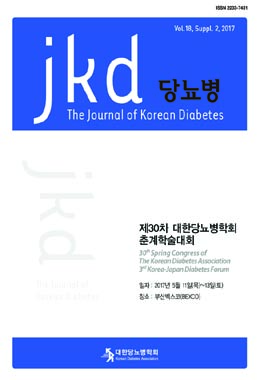Objective: Although growing evidence has emphasized the pivotal role of metabolic status irrespective of body mass index (BMI), there has been no study to examine the association of body size phenotype with development of gestational diabetes that requires treatment in primiparas.
Methods: Data from a total of 216,961 women who participated in the National Health Screening Examination (NHSE) between January 2007 and December 2011 and delivered their first babies within two years of the NHSE were analyzed. Body size phenotypes were classified according to body mass index (BMI) and the presence/absence of metabolic syndrome according to the results of the NHSE. GDM+T was identified using the International Classification of Diseases-10th Revision (ICD-10) and prescription codes using Korea National Health Insurance (KNHI) claims.
Results: Approximately 0.39% of primiparas developed GDM+T. Compared to metabolically healthy normal weight (MHNW) women, both metabolically unhealthy normal weight (MUNW) and metabolically healthy obese (MHO) women had a significantly increased risk for developing GDM+T (odds ratio, OR: 9.53, 95% confidence interval, CI: 5.64-16.09 and OR: 3.30, 95% CI: 2.56-4.25, respectively). Specifically, MUNW individuals had a significantly higher risk of GDM+T when directly compared to MHO women even after adjusting for other GDM risk factors (OR: 2.92, 95% CI: 1.67-5.10). Furthermore, underweight women with metabolic syndrome showed a significantly increased frequency of GDM+T compared to MHNW subjects (OR: 8.87, 95% CI: 1.19-66.32).
Conclusion: Pre-pregnant metabolic status is critical for development of GDM+T, regardless of their BMI. Therefore, intensive intervention for the components of metabolic syndrome may be helpful for the prevention of GDM+T even in low or normal weight women




